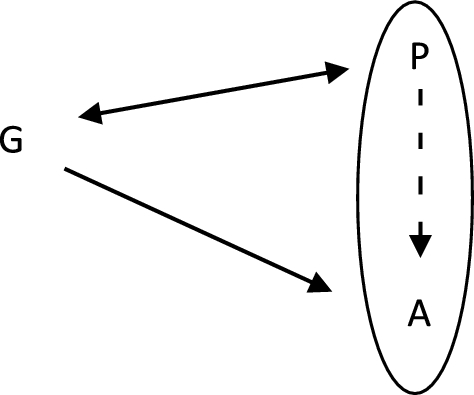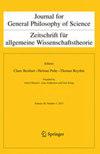医学中的因果多元化及其对临床实践的影响
IF 0.9
2区 哲学
Q2 HISTORY & PHILOSOPHY OF SCIENCE
引用次数: 0
摘要
现有的哲学观点对于医学上的因果关系的意义存在着巨大的分歧。我们接近这个问题,并提供两个论据,赞成关于因果关系概念的多元主义。首先,我们分析了三种主要的研究设计类型(随机对照试验、观察流行病学和实验室研究)。我们通过举例论证,它们允许在每种情况下做出最好的不同理解的因果结论(分别与操纵论、概率论和机械论的定义一致)。其次,我们分析了临床实践,认为这些操纵论、概率论和机械论的因果主张可以作为不同治疗决策的证据。我们区分了不改变因果关系的“预测”,(机械的)“干扰”和严格意义上的“干预”,即根据原因改变结果。中心结论是,与各种因果关系概念相一致的因果主张可以为不同类型的治疗决策提供证据。本文章由计算机程序翻译,如有差异,请以英文原文为准。

Causal Pluralism in Medicine and its Implications for Clinical Practice
Abstract The existing philosophical views on what is the meaning of causality adequate to medicine are vastly divided. We approach this question and offer two arguments in favor of pluralism regarding concepts of causality. First, we analyze the three main types of research designs (randomized-controlled trials, observational epidemiology and laboratory research). We argue, using examples, that they allow for making causal conclusions that are best understood differently in each case (in agreement with a version of manipulationist, probabilistic and mechanistic definitions, respectively). Second, we analyze clinical practice and argue that these manipulationist, probabilistic and mechanistic causal claims can be used as evidence for different therapeutic decisions. We differentiate among ‘predicting’ that does not change the relata of causal claims, (mechanistic) ‘interferences’, and ‘interventions’ in the strict sense that act on causes to change effects. The central conclusion is that causal claims agreeing with diverse concepts of causality can deliver evidence for different types of therapeutic decisions.
求助全文
通过发布文献求助,成功后即可免费获取论文全文。
去求助
来源期刊

Journal for General Philosophy of Science
HISTORY & PHILOSOPHY OF SCIENCE-
CiteScore
2.10
自引率
10.00%
发文量
28
期刊介绍:
The Journal for General Philosophy of Science is a forum for the discussion of a variety of attitudes concerning the philosophy of science. It has as its subject matter the philosophical, especially methodological, ontological, epistemological, anthropological, and ethical foundations of the individual sciences. Particular emphasis is laid on bringing both the natural, the cultural, and the technical sciences into a philosophical context, within which the historical presuppositions and conditions of the current problems of the philosophy of science are also included in the discussion. The Journal for General Philosophy of Science has been successful in its attempt to serve as a forum that bridges the gap between the different sciences, especially the natural, cultural, and social sciences. One of its purposes is to discuss and contrast the common as well as the different specific methodological and philosophical foundations of the individual sciences, taking into account all currently relevant positions of the philosophy of science. In recent years considerable insight has been gained into the problems of current philosophy of science by considering the historical dimension of the sciences. This is why more intensive efforts will be made in the future towards the integration of historical and systematic considerations. The journal contains:articles discussions reports on the state of the philosophy of science in individual countries reviews a bibliography of the major journals in the field of the history and philosophy of science. The journal is of interest to philosophers, especially philosophers of science, as well as to scholars from the field of the natural, cultural, social and technical sciences who are interested in becoming aware of the philosophical implications of their disciplines and in being stimulated by the transfer of methods, leading ideas, concepts and theories from other fields.
As of 2015, Journal for General Philosophy of Science will accept submissions online via the Editorial Manager system. Authors are encouraged to use this format in submitting to the journal to ensure that your article is processed in a timely fashion.
 求助内容:
求助内容: 应助结果提醒方式:
应助结果提醒方式:


